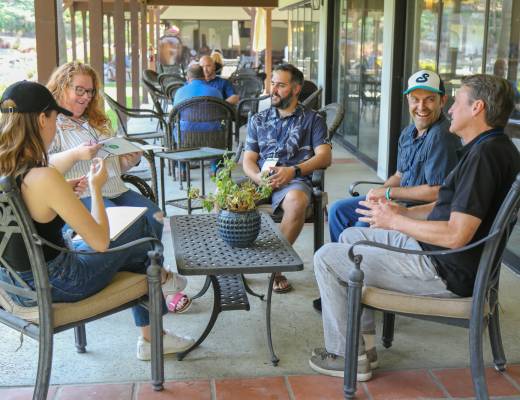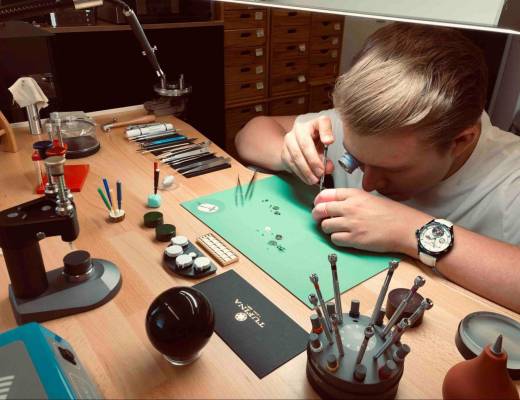Successful entrepreneurs often credit a single piece of advice for shaping their journey to the top. We asked industry experts to share that one piece of advice they received from a mentor or advisor that had a significant impact on their entrepreneurial journey — and how it changed their perspective. Discover the pivotal guidance that propelled their success.
- Understand Problems to Solve Them Effectively
- Build Trust Through Honest Communication
- Sell Value Not Time for Business Growth
- Delegate to Focus on Strategic Growth
- Create Memorable Brands Through Emotional Resonance
- Double Down on What Works
- Focus Obsessively on a Specific Audience
- Prioritize Customer Experience for Long-Term Success
- Know When to Let Go
- Think Long-Term for Sustainable Business Growth
- Make Steady Progress with Intentional Action
- Adopt an Abundance Mindset for Success
- Start Now Embrace Imperfection and Learn
- Listen Empower Others Through Effective Leadership
- Persevere Consistently to Achieve Your Goals
- Understand Psychographics for Targeted Marketing
- Set Short-Term Goals for Big-Picture Success
- Build for the Problem Not the Pitch
How One Piece of Advice Shaped Successful Entrepreneurs
Understand Problems to Solve Them Effectively
Early in my career, I was fortunate to work for a hospital CEO who taught me a leadership principle that fundamentally shaped how I approach business: “You can’t solve problems you don’t understand.”
He would round on staff, listened intently, asked questions, and, most importantly, acted on what he learned. What struck me wasn’t just his accessibility but how authentically engaging with staff provided insights that data alone never could. He understood that the stories people shared, the challenges they described, and the solutions they suggested offered context that spreadsheets and reports couldn’t provide.
This lesson profoundly changed how I built and led my own company. I made it a priority to connect with clients in the same way. Our work involves interviews and relationship building to inform our strategies and recommendations, rather than solely using surveys and data to design solutions.
During our COVID response, this principle proved invaluable. Connection, trust, and our decision to continue serving clients without compensation during the pandemic’s early months strengthened both our relationships and our reputation.
The lesson extended beyond client work to how I managed my own team. Regular check-ins weren’t about monitoring productivity; they were about understanding obstacles, recognizing wins, and identifying opportunities I might miss from the executive level. When team members knew their experiences mattered and their input influenced decisions, they became more invested in our collective success.
This approach also taught me that true leadership isn’t about having all the answers — it’s about asking the right questions and creating environments where people feel safe sharing honest feedback. Some of our best innovations came from these informal conversations.
As I transitioned from CEO of Wakefield Brunswick to building my new firm, this principle remains central to my work advising CEOs and their boards on strategy and resilient leadership. I still believe that presence and genuine curiosity are prerequisites for effective problem-solving. I aim to be someone who leads through connection and understanding and continues to guide every aspect of my entrepreneurial journey.
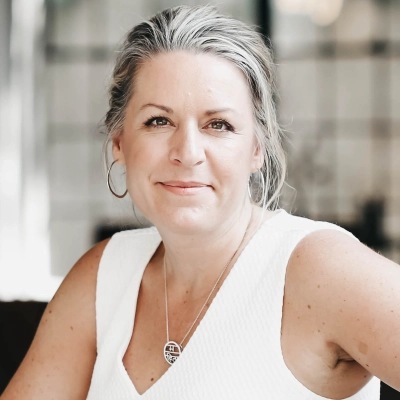 Angela Devlen
Angela Devlen
Speaker | Author | Entrepreneur, AMD Enterprise Management
Build Trust Through Honest Communication
One valuable piece of advice I received early in my entrepreneurial journey was to always prioritize building strong relationships with clients and colleagues. This lesson hit home during our first big client project in Vietnam. The paperwork was complex, and things didn’t go as smoothly as planned. Instead of hiding behind emails, I picked up the phone, explained the situation honestly, and worked with the client to find a solution.
That call turned frustration into trust, and that client has now been with us for over five years, referring others along the way. It reminded me that people value honesty and connection just as much as technical skill. By building real relationships, I’ve gained loyal clients, a reliable network, and a business that thrives on mutual respect. It has made the journey not only more successful, but also a lot more meaningful.
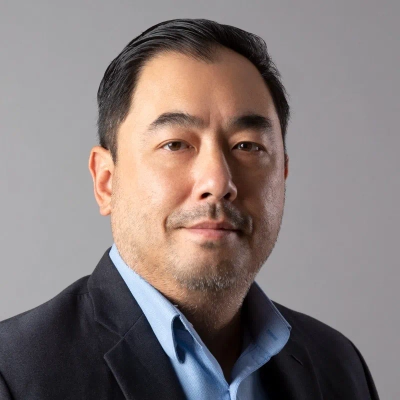 Jack Nguyen
Jack Nguyen
CEO, InCorp
Sell Value Not Time for Business Growth
One of the most impactful pieces of advice I’ve received came from one of my mentors, Patrick O’Connell, who runs a business program for designers. He instilled the idea that you need to sell value, not time. This concept completely changed the way I approach my business.
Before working with Patrick, I was charging by the hour, constantly hopping on calls, and feeling the need to justify every moment I spent working. I believed clients were paying for the number of hours I worked, not the expertise, strategy, and transformation I brought to the table.
His advice helped me reframe that thinking. Clients aren’t hiring me just to design a pretty website; they’re hiring me to create something that brings them visibility, builds credibility, drives leads, and supports their long-term growth. That’s the value. Once I made the shift to pricing based on outcomes instead of hours, everything about my business improved.
I became more intentional about the projects I accepted, I stopped saying yes to unnecessary meetings, and I built more clarity and confidence around my offers. That one piece of advice — sell value, not time — freed me from the burnout cycle and allowed me to grow a business that’s both profitable and sustainable.
 Allison Fraser
Allison Fraser
Owner, Allison Design Co.
Delegate to Focus on Strategic Growth
A mentor once told me, “Just because you can do it all doesn’t mean you should.” I used to wear that as a badge of honour — handling everything myself felt like proof of commitment. But over time, I realized it was slowing me down. That advice helped me see delegation not as a weakness, but as a strategy. When I hired my first assistant, I finally had the headspace to focus on growth, not just survival. It shifted how I built my company — from a business reliant on me to one that could grow beyond me. Letting go didn’t lower the bar; it raised the ceiling. That perspective changed everything.
 Filip Pesek
Filip Pesek
CEO, DonnaPro
Create Memorable Brands Through Emotional Resonance
One mentor gave me a piece of fruitful advice that has always stayed with me: “Your brand isn’t what you say, it’s what people remember.” That insight changed my entire strategy. I began concentrating on emotional resonance, clarity, and consistency instead of writing perfect copy. Whether it’s a brand strategy or a LinkedIn headline, I now ask myself this question: Will this stick? That change enabled me to create brands that not only look good but also feel right, and this is where the magic happens.
 Bhavik Sarkhedi
Bhavik Sarkhedi
Founder & CEO, Ohh My Brand
Double Down on What Works
One of the most impactful pieces of advice I’ve ever received came during an advisor meeting in April 2019. At that time, we had just started making some money as a recruiting agency, about $32,000, and our systems for finding the right engineers for specific jobs were finally working. Even better, we saw a way to automate much of it and become ten times more efficient.
My brother Justin and I walked into that meeting, ready to pitch a brand-new idea of turning our business into a subscription tool and selling it to other recruiting agencies, i.e., our competitors. Needless to say, we were high on ambition and low on logic.
We finally pitched our grand scheme, and this was the first thing our advisors said: “You’ve got a business that’s working, a clear edge, and a way to scale, so why do you want to give that advantage away to your competitors?”
That question hit hard because we didn’t have a good answer and were chasing the “startup dream” of building a software product and selling it for a 10x multiple within five years. I’ll be honest, the whole idea of being a recruiting agency also wasn’t very appealing to us.
But this conversation changed everything. It taught me that chasing what’s flashy isn’t always smart. A growing, profitable business that pays you a salary and gives you freedom? That’s the real dream. Since then, I’ve leaned into doubling down on what actually works.
 Stephen Greet
Stephen Greet
CEO & Co-Founder, BeamJobs
Focus Obsessively on a Specific Audience
A mentor once told me, “Don’t build for everyone — build for someone, obsessively.” I’ve never forgotten it. At first, I tried to make our product work for all users. But that weakened its value and confused our message. This advice pushed me to choose a niche, dig in, and create something really helpful for a specific group.
This change made a huge difference. Marketing got simpler, referrals went up, and product choices became easier. I learned that focus beats trying to be everything to everyone, especially when you’re starting out. Growth often comes from focusing on what works, not trying to reach more people.
 Felix Lucian
Felix Lucian
CEO, Felix Happich Consultancy
Prioritize Customer Experience for Long-Term Success
Throughout my entrepreneurial journey, one piece of advice from my mentor truly stands out: “Always prioritize the customer experience over everything else.” This advice was pivotal in shaping not just my business strategy, but also my understanding of what success looks like in the HVAC industry.
When I first started my business, I was focused heavily on technical excellence — ensuring that our furnace repairs and installations were carried out flawlessly. While quality service is paramount, I soon realized that the foundation of a successful business lies in how customers feel about the services they receive. My mentor emphasized that trust and reliability are as essential as the technical aspects of our work, if not more so.
This advice shifted my perspective and led to the creation of our ALPCare maintenance plans. I wanted to provide our clients with ongoing support, helping them maintain their heating and cooling systems while also alleviating the common anxieties associated with home ownership. By establishing automatic maintenance reminders and offering priority service, we aimed to make energy efficiency and system longevity accessible to all homeowners in the Greater Toronto Area.
Moreover, this customer-centric approach has fostered a culture of open communication within our team. We actively encourage feedback, which has enabled us to continually refine our services and adapt to customer needs. The result has been remarkable — higher satisfaction rates and a loyal customer base that values the peace of mind we provide.
In short, my mentor’s wisdom transformed my business from a service-focused company into a comfort-driven brand that prioritizes customer experience. It’s a lesson that resonates deeply with me, reminding us every day that our ultimate goal isn’t just to fix HVAC systems but to enhance the living experience of our clients and ensure their homes remain a comfortable haven year-round.
 Alex Petlach
Alex Petlach
Owner/Founder, ALP Heating LTD.
Know When to Let Go
“Know when to let it go.”
Coming up with a great concept and throwing your whole heart into it is often not enough. Much of entrepreneurial success comes down to luck and timing. Sometimes you just have to acknowledge that your attempt provided incredible experience and taught you great lessons about yourself, but that it is time to walk away.
I have let multiple concepts go when they have caused me more problems than benefits in my life. One of the most wonderful outcomes has been watching an under-30-year-old unknowingly revive one of my concepts from 15 years ago, proving that now is that idea’s time to burst forth in success.
 C. Kimberly Toms
C. Kimberly Toms
Chief Executive Officer, Not Just One
Think Long-Term for Sustainable Business Growth
Think in terms of years, not days. As an entrepreneur, we can tend to get bogged down in the details, which is one of the reasons that we are successful. At the same time, getting too bogged down in details stops the ability to grow and expand.
For example, when a problem arises, ask yourself: “Will this be a problem in a day? Will this be a problem in a week? Will this be a problem in a year?” Problems that will persist for days or weeks should be delegated to lower-level employees. Problems that persist for months should be dedicated to management, and a problem that could be relevant in a year is something that should be focused on by ownership.
Likewise, focus should be given to projects that are large enough, big enough, and important enough that they are year-long initiatives. Work that can be done in a day or a week should be delegated to the employees that you hire.
This mindset and advice has allowed me, as an entrepreneur, to take a small company and, over 21 years, expand it into a global empire with locations in 15 states, a US territory, and doing business in 95 countries a year!
 Bill Mulholland
Bill Mulholland
Owner, ARC Relocation
Make Steady Progress with Intentional Action
One piece of advice that really stayed with me came from a mentor who said, “You don’t have to do everything at once to move forward. You just have to keep moving with intention.” At the time, I was juggling so many parts of the business like onboarding tutors, supporting families, and building systems, and I was constantly wondering if I was doing enough. That advice helped me shift from trying to do everything perfectly to focusing on steady, meaningful progress.
It reminded me that growing a tutoring company takes time, and that clarity often comes from taking action rather than waiting for everything to feel certain. Since then, I’ve learned to prioritize what has the biggest impact for our students and tutors, delegate more confidently, and stay grounded in our mission even when things get busy or unpredictable. It’s a mindset I return to often, especially during challenging or slower seasons.
 Alexa Coburn
Alexa Coburn
Founder & CEO, Stemly Tutoring
Adopt an Abundance Mindset for Success
One game-changing piece of wisdom I received early on was this:
“Money flows where mindset goes. Having an attitude of abundance rather than scarcity attracts money, clients, and wealth.”
At the time, I was operating from a place of fear — afraid to invest, hesitant to hire, and constantly preparing for the worst-case scenario. My mentor challenged me to shift from a scarcity mindset to an abundance mindset. That meant seeing money as a tool, not a threat. It meant trusting that more would come when I built systems, delivered value, and showed up as if I already belonged in the room.
That shift unlocked everything. I invested in support, expanded my team, raised my rates, and stopped playing small. Today, I run a seven-figure real estate law firm serving luxury clients in South Florida — because I believed bigger was possible.
I’d love to share this story and inspire others to rewrite their money narrative, too.
 Jacqueline Salcines
Jacqueline Salcines
Founder, Attorney at Law, SALCINESLAW
Start Now Embrace Imperfection and Learn
One piece of advice that profoundly shaped my entrepreneurial journey came from a mentor early on, who said: “If you keep waiting for the right moment, you might never start — so just dive in.”
At the time, I was hesitant to launch my seasonal outdoor decor business because I felt I lacked formal design training, extensive resources, and the “right” experience. I worried my age and career background, rooted in corporate HR rather than creative fields, would hold me back. My mentor’s words challenged that mindset and shifted my perspective completely.
Instead of waiting for the ideal conditions, I embraced the idea that progress starts with small, imperfect steps. My former colleague, with whom I had built a friendship in the corporate world, and I decided to take a leap of faith together. We began by redesigning a neighbor’s porch with pumpkins and natural elements, focusing on heartfelt effort and thoughtful details. That small project ignited a spark that turned into a business. It taught me that authenticity and passion matter more than perfection.
Another key piece of advice came from a social media and marketing specialist we consulted early on. As a naturally private person, I was hesitant to put myself out there online. But they stressed how critical a social media presence is; not just to promote a business, but to build genuine connections with an audience you’d never otherwise reach. That insight changed how we approached marketing entirely. I learned that vulnerability and storytelling foster deep engagement, and sharing behind-the-scenes glimpses or personal stories creates loyal community members who resonate with the brand’s values.
This advice empowered me to stop overthinking and start doing, which opened doors I hadn’t imagined. It encouraged me to view my unique background not as a limitation but as an asset that brought a fresh perspective and real-world experience to a creative venture.
Most importantly, it helped me understand that entrepreneurship isn’t about having everything figured out from day one; it’s about adapting, learning, and growing along the way. That mindset freed me from fear of failure and gave me the confidence to pursue my vision even when the path wasn’t clear.
This lesson continues to guide me as we build our business. It’s a reminder that every entrepreneur’s journey is uniquely theirs, and the best time to start is now.
 Rebecca Paxton
Rebecca Paxton
Co-Founder & Managing Partner, My Front Porch
Listen Empower Others Through Effective Leadership
One mentor told me that as a leader, my job is to listen, not to have all the answers. He explained that if I asked the right questions and really listened, I would uncover insights, build trust, and empower others. At the time, I was focused on being decisive and driving results. His advice made me see that the most powerful leaders create space for others to shine. I began to spend more time asking questions, holding open forums, and listening without jumping in. It transformed our culture and improved decision-making because people felt heard and brought their full ideas to the table. It also taught me humility and made me a better communicator.
 Chris Dyer
Chris Dyer
Keynote Speaker On Culture, ChrisDyer.com
Persevere Consistently to Achieve Your Goals
The one piece of advice that has always stuck with me is that perseverance and consistency are often undervalued traits. If you are consistent in how you apply yourself to any situation, you will get better. Starting a career in sales? If you make 1,000 cold calls, you will get better. Starting a career in marketing? If you create 100 blog posts, you will get better. Equally, the ability to persevere will get you through the times when it feels like you are never quite making enough progress. In summary, my mentor summed it up with the quote: “If your chance is 1 in a million and you turn up 1 million times, it’s not luck that you made it. You earned it!”
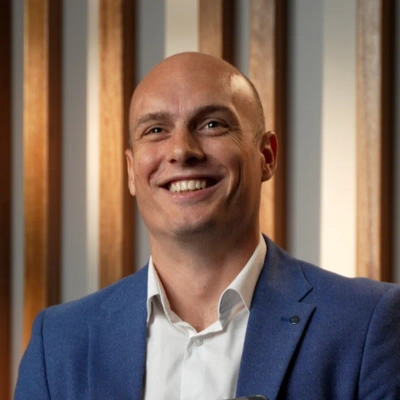 Paul Towers
Paul Towers
Founder & CEO, Playwise HQ
Understand Psychographics for Targeted Marketing
To truly understand your target audience, you need to delve deeper beyond just age and income.
Before I began my entrepreneurial journey, my mentor, the founder of a successful accessory and jewelry business, taught me a valuable lesson. She explained how refining your target audience by understanding psychographic data can help you create extremely targeted messaging and inform the selection of targeting parameters.
Psychographic data includes attributes such as lifestyle, values, personality traits, interests, and opinions.
Obtaining this data can be accomplished through research in the form of surveys, focus groups, and even analysis of social media profiles.
 Bryan Tomek
Bryan Tomek
Founder, North Adams Company
Set Short-Term Goals for Big-Picture Success
I had a mentor tell me early on in my entrepreneurial journey that oftentimes, short-term goals are more important than bigger picture goals. At the time, this confused me a little because all I had were big-picture goals for the business I wanted to start. However, over time, I came to realize the wisdom behind this, and it significantly changed my perspective.
My focus on only big-picture goals was starting to burn me out because I felt like I was working so hard every day without making any progress. Once I began to focus more on my day-to-day goals and allow myself to feel a sense of accomplishment and progress for those little daily things and small accomplishments, it really gave me some momentum, which helped me reach those big-picture goals faster.
 Soumya Mahapatra
Soumya Mahapatra
CEO, Essenvia
Build for the Problem Not the Pitch
A past mentor once told me, “Build for the problem, not the pitch.” That advice resonated with me. I had been too focused on how we talked about our platform and what made us different from other companies at the time. But I realized we were thinking too far ahead. The advice made me want to go back and learn more about the problems users were having that we were trying to solve, not just how we were going to sell the solution.
That change in perspective affected how I led and developed products. We stopped trying to make everything appear perfect so that others would think it was good and started placing more value on getting direct input from users. The adjustments we made weren’t simply fantastic for a presentation; they genuinely improved our platform.
It showed me that listening first brings clarity. When you develop for the problem honestly and consistently, the pitch writes itself. That suggestion helped me stop worrying about appearances and start focusing on how to develop long-term value. It has changed the way I lead every day since.
 Gianluca Ferruggia
Gianluca Ferruggia
General Manager, DesignRush
 Angela Devlen
Speaker | Author | Entrepreneur, AMD Enterprise Management
Angela Devlen
Speaker | Author | Entrepreneur, AMD Enterprise Management
 Jack Nguyen
CEO, InCorp
Jack Nguyen
CEO, InCorp
 Allison Fraser
Owner, Allison Design Co.
Allison Fraser
Owner, Allison Design Co.
 Filip Pesek
CEO, DonnaPro
Filip Pesek
CEO, DonnaPro
 Bhavik Sarkhedi
Founder & CEO, Ohh My Brand
Bhavik Sarkhedi
Founder & CEO, Ohh My Brand
 Stephen Greet
CEO & Co-Founder, BeamJobs
Stephen Greet
CEO & Co-Founder, BeamJobs
 Felix Lucian
CEO, Felix Happich Consultancy
Felix Lucian
CEO, Felix Happich Consultancy
 Alex Petlach
Owner/Founder, ALP Heating LTD.
Alex Petlach
Owner/Founder, ALP Heating LTD.
 C. Kimberly Toms
Chief Executive Officer, Not Just One
C. Kimberly Toms
Chief Executive Officer, Not Just One
 Bill Mulholland
Owner, ARC Relocation
Bill Mulholland
Owner, ARC Relocation
 Alexa Coburn
Founder & CEO, Stemly Tutoring
Alexa Coburn
Founder & CEO, Stemly Tutoring
 Jacqueline Salcines
Founder, Attorney at Law, SALCINESLAW
Jacqueline Salcines
Founder, Attorney at Law, SALCINESLAW
 Rebecca Paxton
Co-Founder & Managing Partner, My Front Porch
Rebecca Paxton
Co-Founder & Managing Partner, My Front Porch
 Chris Dyer
Keynote Speaker On Culture, ChrisDyer.com
Chris Dyer
Keynote Speaker On Culture, ChrisDyer.com
 Paul Towers
Founder & CEO, Playwise HQ
Paul Towers
Founder & CEO, Playwise HQ
 Bryan Tomek
Founder, North Adams Company
Bryan Tomek
Founder, North Adams Company
 Soumya Mahapatra
CEO, Essenvia
Soumya Mahapatra
CEO, Essenvia
 Gianluca Ferruggia
General Manager, DesignRush
Gianluca Ferruggia
General Manager, DesignRush


